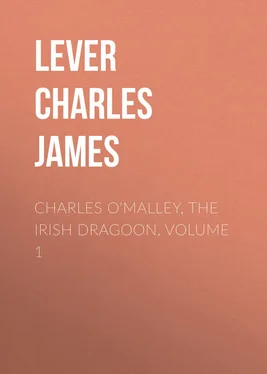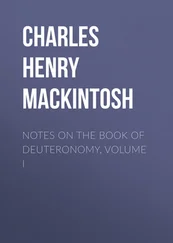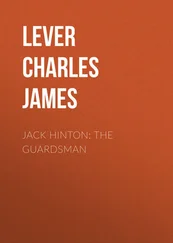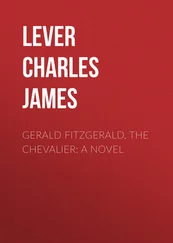Charles Lever - Charles O'Malley, The Irish Dragoon, Volume 1
Здесь есть возможность читать онлайн «Charles Lever - Charles O'Malley, The Irish Dragoon, Volume 1» — ознакомительный отрывок электронной книги совершенно бесплатно, а после прочтения отрывка купить полную версию. В некоторых случаях можно слушать аудио, скачать через торрент в формате fb2 и присутствует краткое содержание. Издательство: Иностранный паблик, Жанр: literature_19, foreign_antique, foreign_prose, на английском языке. Описание произведения, (предисловие) а так же отзывы посетителей доступны на портале библиотеки ЛибКат.
- Название:Charles O'Malley, The Irish Dragoon, Volume 1
- Автор:
- Издательство:Иностранный паблик
- Жанр:
- Год:неизвестен
- ISBN:нет данных
- Рейтинг книги:4 / 5. Голосов: 1
-
Избранное:Добавить в избранное
- Отзывы:
-
Ваша оценка:
- 80
- 1
- 2
- 3
- 4
- 5
Charles O'Malley, The Irish Dragoon, Volume 1: краткое содержание, описание и аннотация
Предлагаем к чтению аннотацию, описание, краткое содержание или предисловие (зависит от того, что написал сам автор книги «Charles O'Malley, The Irish Dragoon, Volume 1»). Если вы не нашли необходимую информацию о книге — напишите в комментариях, мы постараемся отыскать её.
Charles O'Malley, The Irish Dragoon, Volume 1 — читать онлайн ознакомительный отрывок
Ниже представлен текст книги, разбитый по страницам. Система сохранения места последней прочитанной страницы, позволяет с удобством читать онлайн бесплатно книгу «Charles O'Malley, The Irish Dragoon, Volume 1», без необходимости каждый раз заново искать на чём Вы остановились. Поставьте закладку, и сможете в любой момент перейти на страницу, на которой закончили чтение.
Интервал:
Закладка:
While, however, I was sifting these evidences, and separating, as well as I might, the wheat from the chaff, I was in a measure training myself for what, without my then knowing it, was to become my career in life. This was not therefore altogether without a certain degree of labor, but so light and pleasant withal, so full of picturesque peeps at character and humorous views of human nature, that it would be the very rankest ingratitude of me if I did not own that I gained all my earlier experiences of the world in very pleasant company, – highly enjoyable at the time, and with matter for charming souvenirs long after.
That certain traits of my acquaintances found themselves embodied in some of the characters of this story I do not to deny. The principal of natural selection adapts itself to novels as to Nature, and it would have demanded an effort above my strength to have disabused myself at the desk of all the impressions of the dinner-table, and to have forgotten features which interested or amused me.
One of the personages of my tale I drew, however, with very little aid from fancy. I would go so far as to say that I took him from the life, if my memory did not confront me with the lamentable inferiority of my picture to the great original it was meant to portray.
With the exception of the quality of courage, I never met a man who contained within himself so many of the traits of Falstaff as the individual who furnished me with Major Monsoon. But the major – I must call him so, though that rank was far beneath his own – was a man of unquestionable bravery. His powers as a story-teller were to my thinking unrivalled; the peculiar reflections on life which he would passingly introduce, the wise apothegms, were after a morality essentially of his own invention. Then he would indulge in the unsparing exhibition of himself in situations such as other men would never have confessed to, all blended up with a racy enjoyment of life, dashed occasionally with sorrow that our tenure of it was short of patriarchal. All these, accompanied by a face redolent of intense humor, and a voice whose modulations were managed with the skill of a consummate artist, – all these, I say, were above me to convey; nor indeed as I re-read any of the adventures in which he figures, am I other than ashamed at the weakness of my drawing and the poverty of my coloring.
That I had a better claim to personify him than is always the lot of a novelist; that I possessed, so to say, a vested interest in his life and adventures, – I will relate a little incident in proof; and my accuracy, if necessary, can be attested by another actor in the scene, who yet survives.
I was living a bachelor life at Brussels, my family being at Ostende for the bathing, during the summer of 1840. The city was comparatively empty, – all the so-called society being absent at the various spas or baths of Germany. One member of the British legation, who remained at his post to represent the mission, and myself, making common cause of our desolation and ennui, spent much of our time together, and dined tête-à-tête every day.
It chanced that one evening, as we were hastening through the park on our way to dinner, we espied the major – for as major I must speak of him – lounging along with that half-careless, half-observant air we had both of us remarked as indicating a desire to be somebody’s, anybody’s guest, rather than surrender himself to the homeliness of domestic fare.
“There’s that confounded old Monsoon,” cried my diplomatic friend. “It’s all up if he sees us, and I can’t endure him.”
Now, I must remark that my friend, though very far from insensible to the humoristic side of the major’s character, was not always in the vein to enjoy it; and when so indisposed he could invest the object of his dislike with something little short of antipathy. “Promise me,” said he, as Monsoon came towards us, – “promise me, you’ll not ask him to dinner.” Before I could make any reply, the major was shaking a hand of either of us, and rapturously expatiating over his good luck at meeting us. “Mrs. M.,” said he, “has got a dreary party of old ladies to dine with her, and I have come out here to find some pleasant fellow to join me, and take our mutton-chop together.”
“We’re behind our time, Major,” said my friend, “sorry to leave you so abruptly, but must push on. Eh, Lorrequer,” added he, to evoke corroboration on my part.
“Harry says nothing of the kind,” replied Monsoon, “he says, or he’s going to say, ‘Major, I have a nice bit of dinner waiting for me at home, enough for two, will feed three, or if there be a short-coming, nothing easier than to eke out the deficiency by another bottle of Moulton; come along with us then, Monsoon, and we shall be all the merrier for your company.’”
Repeating his last words, “Come along, Monsoon,” etc., I passed my arm within his, and away we went. For a moment my friend tried to get free and leave me, but I held him fast and carried him along in spite of himself. He was, however, so chagrined and provoked that till the moment we reached my door he never uttered a word, nor paid the slightest attention to Monsoon, who talked away in a vein that occasionally made gravity all but impossible.
Our dinner proceeded drearily enough, the diplomatist’s stiffness never relaxed for a moment, and my own awkwardness damped all my attempts at conversation. Not so, however, Monsoon, he ate heartily, approved of everything, and pronounced my wine to be exquisite. He gave us a perfect discourse on sherry and Spanish wines in general, told us the secret of the Amontillado flavor, and explained that process of browning by boiling down wine which some are so fond of in England. At last, seeing perhaps that the protection had little charm for us, with his accustomed tact, he diverged into anecdote. “I was once fortunate enough,” said he, “to fall upon some of that choice sherry from the St. Lucas Luentas which is always reserved for royalty. It was a pale wine, delicious in the drinking, and leaving no more flavor in the mouth than a faint dryness that seemed to say, another glass. Shall I tell you how I came by it?” And scarcely pausing for reply, he told the story of having robbed his own convoy, and stolen the wine he was in charge of for safe conveyance.
I wish I could give any, even the weakest idea of how he narrated that incident, – the struggle that he portrayed between duty and temptation, and the apologetic tone of his voice in which he explained that the frame of mind that succeeds to any yielding to seductive influences, is often, in the main, more profitable to a man than is the vain-glorious sense of having resisted a temptation. “Meekness is the mother of all the virtues,” said he, “and there is no being meek without frailty.” The story, told as he told it, was too much for the diplomatist’s gravity, he resisted all signs of attention as long as he was able, and at last fairly roared out with laughter.
As soon as I myself recovered from the effects of his drollery, I said, “Major, I have a proposition to make you. Let me tell the story in print, and I’ll give you five naps.”
“Are you serious, Harry?” asked he. “Is this on honor?”
“On honor, assuredly,” I replied.
“Let me have the money down, on the nail, and I’ll give you leave to have me and my whole life, every adventure that ever befell me, ay, and if you like, every moral reflection that my experiences have suggested.”
“Done!” cried I, “I agree.”
“Not so fast,” cried the diplomatist, “we must make a protocol of this; the high contracting parties must know what they give and what they receive, I’ll draw out the treaty.”
He did so at full length on a sheet of that solemn blue-tinted paper, so dedicated to despatch purposes; he duly set fourth the concession and the consideration. We each signed the document; he witnessed and sealed it; and Monsoon pocketed my five napoleons, filling a bumper to any success the bargain might bring me, and of which I have never had reason to express deep disappointment.
Читать дальшеИнтервал:
Закладка:
Похожие книги на «Charles O'Malley, The Irish Dragoon, Volume 1»
Представляем Вашему вниманию похожие книги на «Charles O'Malley, The Irish Dragoon, Volume 1» списком для выбора. Мы отобрали схожую по названию и смыслу литературу в надежде предоставить читателям больше вариантов отыскать новые, интересные, ещё непрочитанные произведения.
Обсуждение, отзывы о книге «Charles O'Malley, The Irish Dragoon, Volume 1» и просто собственные мнения читателей. Оставьте ваши комментарии, напишите, что Вы думаете о произведении, его смысле или главных героях. Укажите что конкретно понравилось, а что нет, и почему Вы так считаете.












